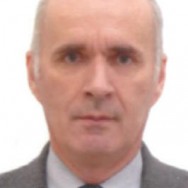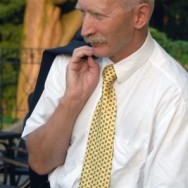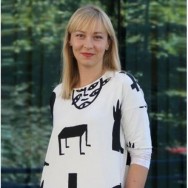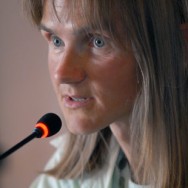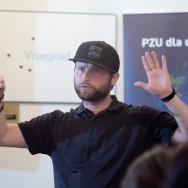First Secretary at the Embassy of the Slovak Republic in Warsaw dealing with EU affairs. Previous diplomatic post in Paris and Brussels. Former Country Representative for the Slovak part of Carpathian Euroregion seated in Bardejov. Graduated from the Comenius University in social and economic geography, post-graduate studies on public administration at Academia Istropolitana in Bratislava.
Experts
Czesław Porębski
Philosopher and ethicist; professor at the Cracow University of Economics, Jagiellonian University, Tischner European University in Krakow and International Academy of Philosophy in Liechtenstein. He has spent some time at the Grand Valley State University and at the University of Vienna. He has lectured in Geneva, Freiburg, Tilburg, Vienna, Graz, Uppsala and Stockholm.
Grzegorz Pożarlik
MA in Sociology at the Jagiellonian University. PhD in Humanities at the Jagiellonian University. Assistant professor at the Centre for European Studies, Jagiellonian University. Coordinator of the MA in European Studies programme. Authors of numerous articles about European citizenship, enlargement, the entrance of Poland into the UE. Participated in international conferences relating European issues. Teaches in the Centre for European Studies at Jagiellonian University, in Department of Politics at the University of Bristol, in the Institute of European Integration at the National University of Lviv and in the Centre for European Studies at the University of Vienna.
Aleksandra Przegalińska
PhD in philosophy of artificial intelligence, assistant Professor at Kozminski University in Warsaw, recently visiting scholar at The New School for Social Research/ Brown University in New York City (2014). In 2011, she worked as the Chairman of Audiovisual Working Party at the Council of European Union in Brussels and as an international representative of the Ministry of Culture and National Heritage. As a William J. Fulbright Scholar, she also majored in Sociology at The New School for Social Research in New York (2012), where she participated in research on identity in virtual reality, with particular emphasis on Second Life. Her primary research interest includes consequences of introducing artificial intelligence systems to people’s social and professional sphere.
Aleksandra Przegalińska
Wojciech Przybylski
Wojciech Przybylski leads the largest strategic foresight program on European policies in Central Europe. He is the editor of Visegrad Insight at the Res Publica Foundation in Warsaw. Previously, he served as the editor-in-chief of Res Publica Nowa and later of EUROZINE, a pan-European network of cultural magazines. He is a guest lecturer for the Foreign Service Institute for the U.S. Government, the Central European University Democracy Institute, and the Pázmány Catholic University in Budapest. He is a graduate of MISH at the University of Warsaw, a Europe’s Future Fellow at the Institute for Human Sciences (IWM) in Vienna, and a member of the advisory board for LSE IDEAS Ratiu Forum, the European Forum for New Ideas, and the Schmidt Futures International Strategy Forum. He has published works including "Understanding Central Europe" (Routledge 2017) and "On the Edge. Poland" (Culturescapes 2019). Twitter: @wprzybylski
Katarzyna Przybysławska
PhD in law (Jagiellonian University), with a specialty in human rights and refugee law. Co-founder and president of the Halina Nieć Legal Aid Center, a non-governmental organization devoted to the protection of human rights through free legal aid and UNHCR’s implementing partner. Refugee Studies Centre, University of Oxford Fellow, member of the Commission of Experts on Migrants to the Ombudsman’s Office.
Małgorzata Radkiewicz
An assistant professor at the Institute of Media and Audio Visual Arts at the Jagiellonian University in Krakow. Her research interests and publications focus on gender in film and media as well as on much wider category of identity in terms of national, cultural and artistic dimensions of European cinema after 1989. Her academic activities combine studies on film theories and film analysis in terms of gender and identity. Additionally to film and media studies, she coordinates the programme of Postgraduate Gender Studies in Krakow.
Tomas Rafa
Tomas Rafa is a Slovak artist whose works engage with social and political issues and explore the impact that art can have on reality. Through film footage and outputs in the form of reports Rafa defines the relativity of the boundaries between patriotism and nationalism (extremism). He approaches terms such as multiculturalism (Roma people), xenophobia, extremism and neofascism against the background of everyday life. The reports generated from Rafa's investigation contain content about new nationalism that is easy to understand by wide range of audiences.
Agnieszka Ragin
Representative of the Chancellery of the President of Poland Aleksander Kwaśniewski.

